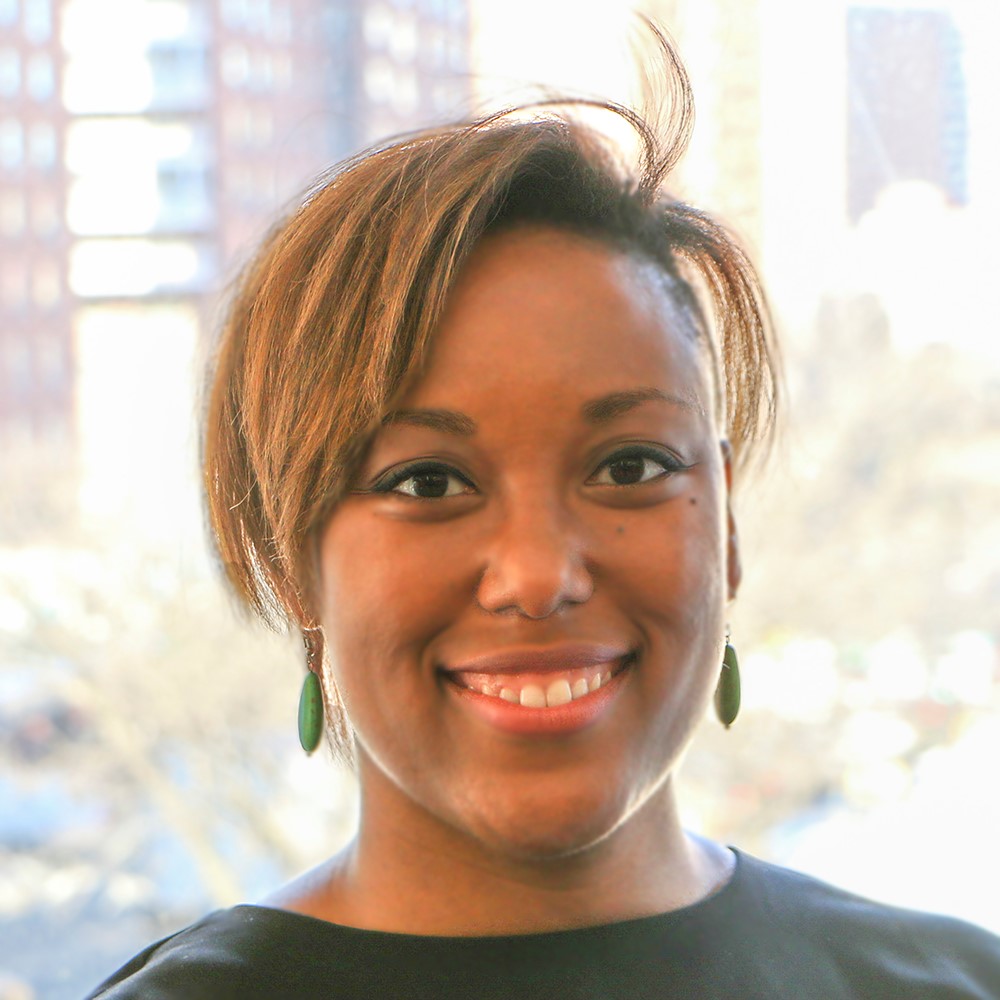SARA TOTH – EDITOR

Is racial empathy possible? That’s the question Courtney Cogburn approaches through her research and work with virtual reality — a helpful tool to foster conversations but, she cautions, only just a tool.
“Do we need VR to help you understand that racism is not good, that it’s not a good thing, it doesn’t feel good?” she said in a recent interview for NPR’s “Morning Edition.” “To what degree do I need to create an experience to help you see and understand that? And perhaps the more important question would be, why do you need to see it from this particular point of view?”
Cogburn, the co-director of the Columbia School of Social Work’s Justice, Equity, Technology Lab, is the lead creator of “1000 Cut Journey,” an immersive VR experience that simulates moments of a Black child’s life, going through adolescence, and the racism they face along the way.
“1000 Cut Journey” debuted at the Tribeca Film Festival in 2018; Cogburn also served as a director, producer and writer on the project. She’ll be discussing her work — and the work that remains to be done — at 10:30 a.m. Thursday, Aug. 5 in the Amphitheater, concluding the Chautauqua Lecture Series Week Six theme of “Building a Culture of Empathy.”
“This is a week of lectures that doesn’t come to an end tied in a bow, but rather leads us to more questions and more exploration,” said Matt Ewalt, vice president and Emily and Richard Smucker Chair for Education. “We end with Professor Cogburn addressing ways in which empathy — for all it can do — is still insufficient when it comes to what is needed to effect systemic change.”
The 10-minute-long “1000 Cut Journey” was lauded for its ability to make people feel real emotions in response to the immersion, but there are shortcomings to the technology. When she was reviewing feedback from people who had experienced the work of “1000 Cut Journey,” Cogburn found reactions varied from person to person — essentially, as she told Wired’s Rita Omokha, “you can’t pour training into a container that’s not ready to receive it.” People might not understand why anti-racism training is needed, for example, or reject — either consciously or subconsciously — that it’s needed at all.
Omokha’s article, titled “VR Trainings Are Not Going to Fix Corporate Racism,” explores human resources departments’ increased use of VR platforms to focus training on diversity, equity and inclusion. Cogburn consulted on some of these platforms, and ultimately, she told Omokha, VR is in no way a cure-all.
“Emotional empathy is the ability to understand how someone is feeling,” Cogburn said. “I’m not sure it’s possible, and certainly not with a few minutes in VR, to know the burden that comes with trying to survive whiteness from birth. I don’t think I could create the experience you would need to have. Do I just leave you in VR for five years?”




